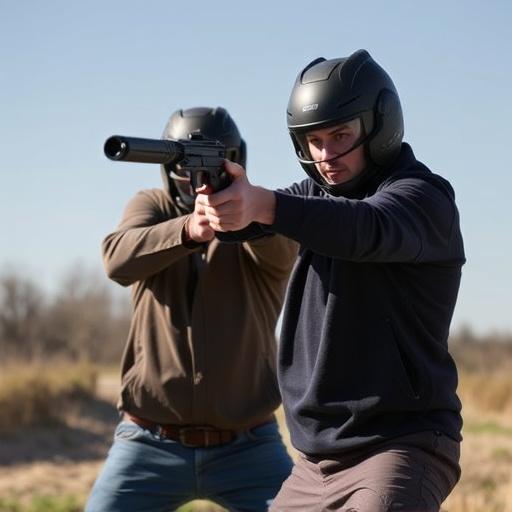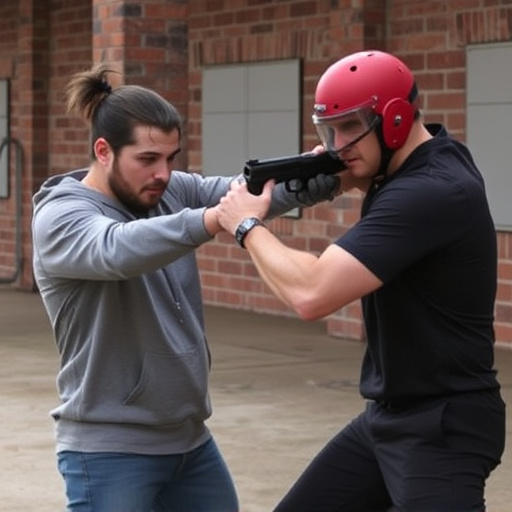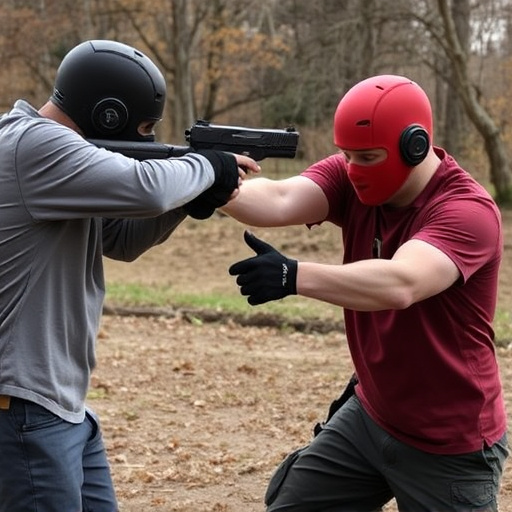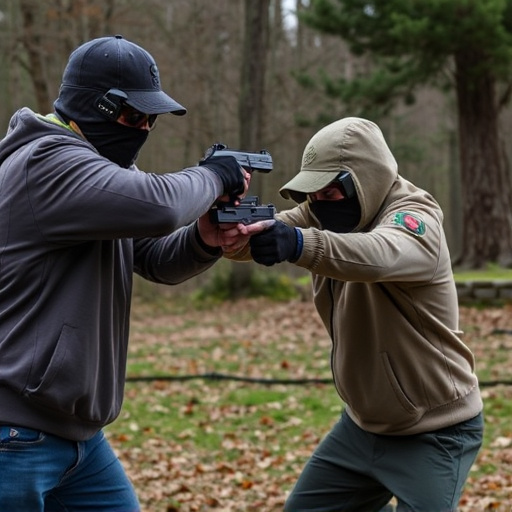Concealed Carry Regulations: Rechargeable Stun Devices and Safety Guidelines
Understanding concealed carry laws is crucial before purchasing rechargeable stun devices, as state…….
Understanding concealed carry laws is crucial before purchasing rechargeable stun devices, as state regulations vary widely regarding permit requirements, age restrictions, and permitted locations. While some areas classify these devices as firearms under strict rules, others have distinct categories for low-power models. Responsible ownership requires compliance with local laws, thorough training, and understanding device features, storage, and maintenance to ensure effective self-defense and public safety. Shop our range of high-quality rechargeable stun devices for modern self-defense solutions.
In today’s world, personal safety is a paramount concern. For those seeking protection, concealed carry stun guns have emerged as a viable option. This comprehensive guide delves into the intricate web of regulations surrounding these powerful self-defense tools, with a special focus on rechargeable stun devices for sale. From understanding hidden carry laws to exploring legal statuses and safety measures, this article equips readers with knowledge to navigate the landscape confidently.
- Understanding Concealed Carry Laws: A Comprehensive Overview
- The Legal Status of Rechargeable Stun Devices
- Buying and Selling Stun Guns: What You Need to Know
- Safety Measures and Training Requirements for Concealed Carry Permits
Understanding Concealed Carry Laws: A Comprehensive Overview

Understanding concealed carry laws is essential, especially for those considering purchasing a stun device like rechargeable stun guns for sale. Each state has its own set of regulations governing the carrying of weapons, including stun devices, which can vary widely in terms of permit requirements, age restrictions, and allowed locations. For instance, some states allow open or concealed carry with minimal licensing, while others mandate specific types of permits for both.
When considering a rechargeable stun device as a self-defense tool, it’s crucial to research your state’s rules. Check if stun guns are classified as weapons, and familiarize yourself with any restrictions on their use, possession, and transportation. This comprehensive overview will help ensure that you remain compliant with local laws while enjoying the peace of mind that comes with knowing how to protect yourself effectively.
The Legal Status of Rechargeable Stun Devices

The legal status of rechargeable stun devices varies across jurisdictions, which is a key consideration for those looking to purchase and carry such self-defense tools. In many regions, stun guns are regulated as firearms or less lethal weapons, subject to strict controls and licensing requirements. This includes restrictions on who can buy, possess, and carry them, along with limitations on the power output and design. However, some areas have recognized the unique role of stun devices in personal safety and have established distinct categories for low-power, rechargeable models.
Rechargeable stun devices for sale often fall into a legal gray area due to their electric shock capabilities and potential as both self-defense tools and non-lethal law enforcement equipment. As a result, specific regulations aim to differentiate between devices used for personal protection and those employed in official capacities. Understanding these laws is essential for responsible ownership and compliance, ensuring that individuals can defend themselves effectively while adhering to local concealed carry stun gun regulations.
Buying and Selling Stun Guns: What You Need to Know

Safety Measures and Training Requirements for Concealed Carry Permits

Obtaining a concealed carry permit comes with stringent safety measures and training requirements. Applicants must demonstrate proficiency in handling firearms, including stun guns, to ensure they can use them safely and effectively. This often involves rigorous training courses that cover topics like gun safety, range practice, and self-defense strategies. Many states mandate specific training hours or certifications from recognized programs to qualify for a permit.
One key aspect is understanding the features of rechargeable stun devices for sale. Permit holders should be knowledgeable about the different types of stun guns, their voltage outputs, and safe use protocols. Proper storage and care of these devices are also crucial, as they often require regular maintenance and charging, similar to any other electronic device. Adhering to local laws regarding stun gun carrying ensures public safety and reduces the risk of accidental discharge or misuse.
In light of the above discussions, it’s clear that navigating concealed carry stun gun regulations involves understanding both state and federal laws. Rechargeable stun devices for sale must comply with specific legal standards, and buyers should prioritize safety measures and proper training to ensure responsible ownership. Always remember, the goal is to stay informed and uphold public safety when considering a concealed carry permit.


